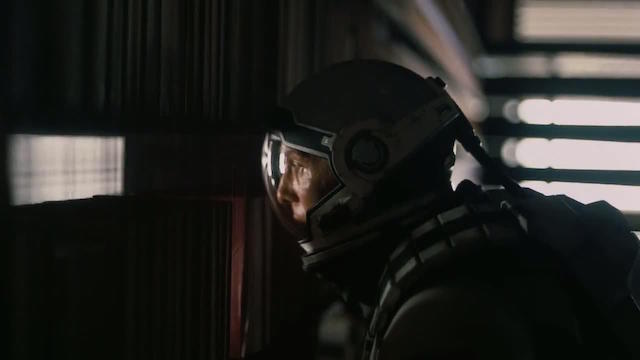
Christopher Nolan, the director of Interstellar, popped up this week, talking about the science in his epic space opera. He told the BBC:
I got a lot of fascinating insights into the possibilities of the universe and so we felt a real responsibility with the film to try to inspire young people in the same way.
He also said:
It feels like the time to try and inspire another generation to really look outwards, and look to the stars again.
And went on to state:
We really hoped that by dramatizing these ideas, by dramatizing science and making it something that hopefully could be entertaining for kids, we might inspire some of the astronauts of tomorrow… that would be the ultimate goal of the project.
I listened to the interview, and was perplexed. It never occurred to me that Interstellar might be considered an inspiring story. Dispiriting? Yes. Depressing? Quite. Desperate? Often. Inspiring? Hardly.
Inspiration motivates action. Its wellspring is the belief that the individual can shape the future. As such, inspiration is the mortal foe of fatalism. Whilst the heroes of Interstellar travel through a wormhole to exotic new worlds, the film drowns in its own sense of destiny.
Interstellar begins with the human race in a state of irreversible decline. A blight forces the burning of crops, making it increasingly unlikely that people will be able to feed themselves. Science provides no solution to this most fundamental of challenges. Nobody has a credible plan to save the planet, or to improve the quality of life here. Everything hinges on an improbable bid to relocate the human race to another world.
By the time the film finishes, we learn that everything was bound to work out the way it did, thanks to the literal engineering of loopholes in time. Whenever the protagonists face an insurmountable problem, they only need to wait for their fifth-dimensional descendants to provide the solution. This may take the form of an Einstein-Rosen bridge. Or it may be scientific data not obtainable with the technology currently available to humans. Or it may be a tesseract within a supermassive black hole, which catches the hero and lets him communicate with his daughter by flinging books from the shelf of her childhood home. I assume that few scientific equations were crunched to develop that last bit of the plot.
Without the help of the mysterious, powerful and benevolent future humans, the film’s prot-agonists are not even agonists. They may shuffle small pieces around the interstellar game board, but only because superior beings have invited them to play. And the consequence of each move deviates wildly from the protagonists’ plans. If they had known how to win the game, their first ship would have flown straight into a black hole, so they could phone a friend and explain how to solve the mumbo-jumbo-who-wants-to-be-a-millionaire-and-save-the-species equation. The end. That way, poor old Matt Damon would not have ended up so homicidally lonely on his crappy ice world.
The story blurs physics with metaphysics, riding an escalator of increasingly goofy principles that starts with the utterly respectable phenomenon of time dilation and ends with the cliché that love conquers all. I can accept that love might defeat an army of orcs, or wake a sleeping princess, or move a mountain, or cheat death. But it is too much to expect love to also transmit the gravitational equivalent of a telegram. No communications technology that combines love with morse code is ever going to catch on, whether in this universe or any other.
Heroes are inspiring, because they effect the change they want to see. Science is inspiring, because it can empower transformation. It is not inspiring to rely on our great great grandkids to clean up the mistakes we make, and cannot fix for ourselves. However, that has become a common theme in our profoundly hopeless era. I agree with Nolan that we need new stories which use science to inspire the heroes of coming generations. But Interstellar was not that story.
For those who disagree, this was the interview that Nolan gave the BBC.

Be the first to comment